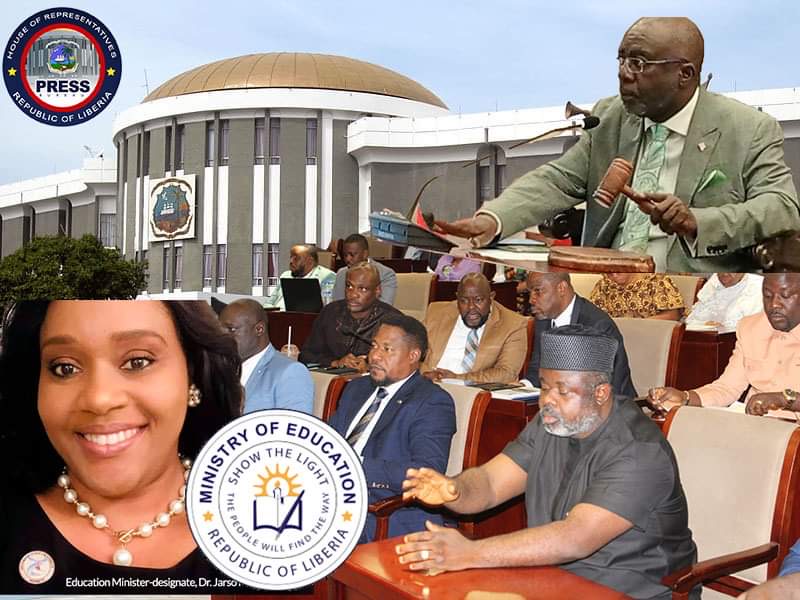“No Attention For the Deaf and Visually Impaired Students”; House Summons MOE

By: Jeremiah Sackie Cooper
Gmail: jeremiahcooper105@gmail.com
Capitol Hill: The Plenary of the 55th House of Representatives has summoned authorities of the Ministry of Education (MOE) over the alleged abandonment of educational programs for Deaf and Visually Impaired Students.
The Plenary took the decision during its 12th Sitting on Tuesday February 20, 2024.
The House’s decision was triggered by a communication from Representative Michael Thomas of District #4 Montserrado County.
Representative Thomas in his communication to the plenary, alleged that the Ministry of Education has abandoned the government’s policy on free, compulsory, and special education for visually impaired and deaf Liberian students.
He noted that due to the abandonment, there is a decline in the number of school enrolment among deaf, visually impaired and other vulnerable groups in Liberia.
The Montserrado County District #4 Lawmaker furthered stated that the act by the Ministry of Education has led to huge increase in the number of streets beggars among people with disabilities.
“As we are aware, the Government’s policy on Free and Compulsory Education and Special education in Liberia with its introduction in 2001 and reaffirmed in 2011, is an Educational Reform Act passed by the Liberian Legislature in 2011 to improve the country’s quality of education, to encourage school enrollment, reform the governance structure of the education system and to fulfill the constitutional provision that obligates the government to develop the minds of Liberian Children and people living with Disability through the Special Inclusive Education Division of the Ministry of Education; thus neglectfully leading the deaf and visually impairs into becoming mere street beggars”, Rep. Thomas added.
Rep.Thomas at the same time expressed frustration in the failure of the Ministry of Education to live up to its responsibility by providing quality education to Liberian children.
“Unfortunately, policies and programs outlined by the Ministry of Education have heavily challenged the educational sector, with state actors labeling the sector as a mess with little or no improvement”, he stated.
Rep.Thomas emphasized “ it will satiate your curiosity to note that to a larger extent, the availability of education to every Liberian child, and people living with disability will shape the minds of a huge portion of the future leaders in the right perspective and reduce the dangers posed by illiteracy to the basic equity in the social, moral, and political areas of the country”.
In 2011, Liberia enacted the Education Reform Act, which aimed to overhaul the country’s education system by improving the quality of education, increasing access to education, and reforming the governance structure.
The 2011 Education Reform Act has had a notable impact on Liberia’s education system, with improvements in enrollment, gender parity, but with difficulty in the access to education quality.
According to the World Bank, in 2020, only 45.2% of primary school students reached minimum proficiency in reading and 38.3% in mathematics.
Access to basic education in Liberia has declined and is at risk of privatization with private and faith-based institutions in the driving seat of the Liberian education sector, according to UNESCO.
Meanwhile the authorities of the Ministry of Education are expected to appear before the plenary of the House of Representatives next Thursday, February 29, 2024.



